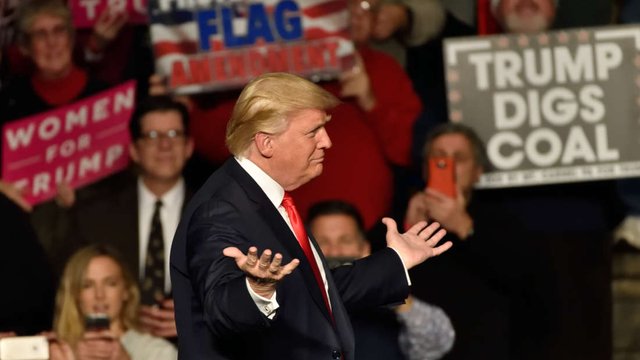Trump's Plan To Keep Coal Power Plants Running Would Kill Hundreds Of Americans
You might not have realized, but the Trump administration really digs coal. Even as much of the world turns its back on the infamously dirty (but still frustratingly cheap) source of power, the White House is determined to find out how to use even the most obscure federal powers to intervene in the energy market and apply the defibrillator.
It’s not yet clear if or when any kind of coal bailout would happen, but a new working paper by the non-profit Resources for the Future (RFF) has looked at the version that would keep nuclear and coal power plants from shutting down for two additional years. Spoiler alert: it’s a terrible, no good, very bad idea.
Putting aside the fact that it would boost America’s greenhouse gas (GHG) emissions equivalent to putting 4.3 million more cars on the road per year, it would also cause 353 to 815 premature deaths in 2019-2020 – and that, like all values in the paper, is a conservative estimate.
The plan – which we’ll poetically refer to as the Coal Floater Initiative (CFI) – doesn’t even do the thing it’s supposed to do: create jobs and boost the economy. According to the study, although it would support a staggeringly low number of coal-mining jobs (about 790), it is also “likely to reduce economy-wide employment” due to the knock-on effect on other sectors.
That’s not the standout part of the study, though. The statistic that really sticks with you is this: for every 2 to 4.5 extra coal sector jobs added, a person somewhere in the US will die as a result of the extra air pollution those jobs will be helping to generate. Most of these will be caused by sulfur dioxide emissions, which already help to kill 4.5 million people per year around the globe by attacking the lining of their lungs.
This comes with an economic cost too. Dealing with the negative health effects of this marginally boosted coal sector will cost between $4 and $9 billion. Altogether then, this plan is about as good an idea as broken glass-topped pineapple pizza.
Interestingly, the team also look at the effects of applying the CFI to nuclear power only. Nuclear power isn’t exactly “clean” energy, but it’s a long-term, consistent, low-carbon source of energy that both experts and studies are seeing as somewhat essential to our efforts to mitigate anthropogenic climate change.
Unfortunately, it’s often prohibitively expensive, and is being outcompeted by renewables (fine) and natural gas obtained via fracking (boo). If the CFI was used for nuclear power, however, it could prevent 24 to 53 premature deaths, and cut out around 1.8 million cars’ worth of emissions per year – not great, but certainly better than coal.
It’s worth pointing out that this is a working paper; it’s based on various atmospheric circulation models and health data, but it hasn’t been peer-reviewed (as far as I can tell). It’s authored by two economy majors, not environmental scientists.
It’s also certainly worth remembering that this is all based off a leaked June memo from Trump to the bumbling Energy Secretary Rick Perry, and that it may take a different form or never come to pass.
Still, it’s a useful look at the damaging effects of propping up the coal industry, which is increasingly looking like it’s on its knees. It’s bad for the climate, bad for the environment, bad for public health and – considering the cost alone of keeping these power plants alive is at least $4.4 billion – bad for the economy.
Here’s an idea for you then: don’t do it.
We don't need coal energy anymore. There are already many other better sources of energy.
You got a 20.70% upvote from @brupvoter courtesy of @discernente!